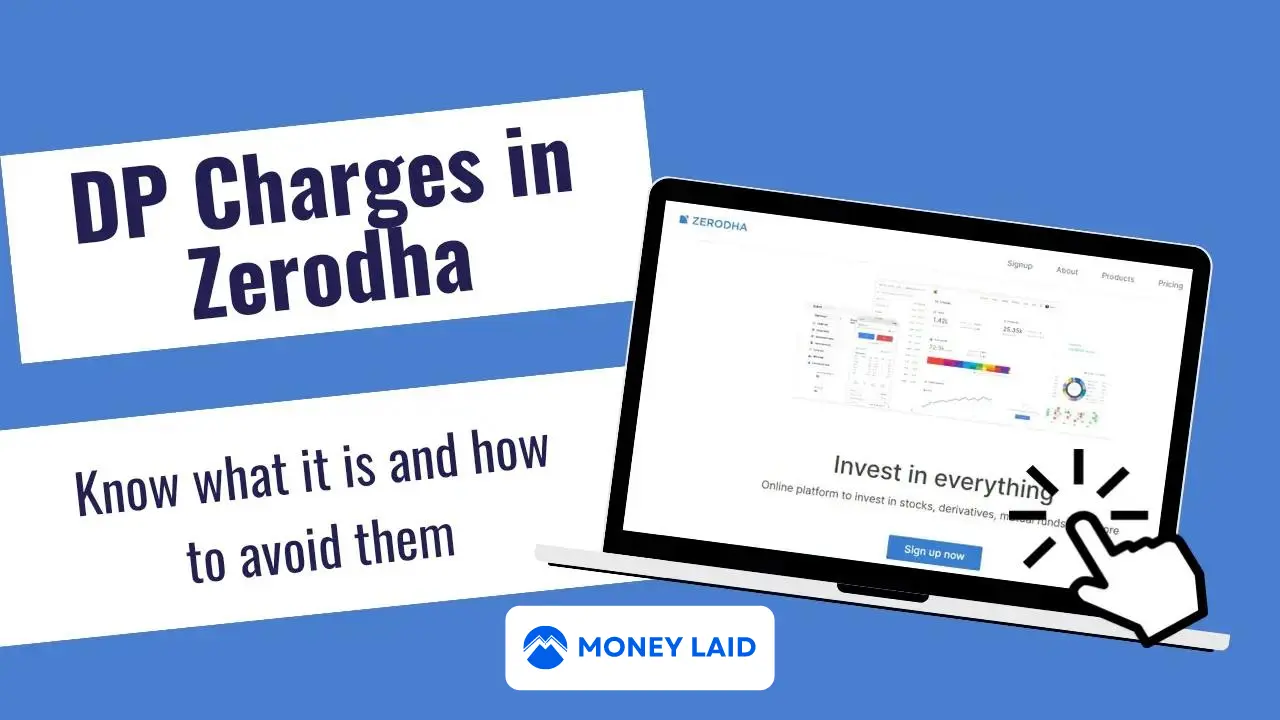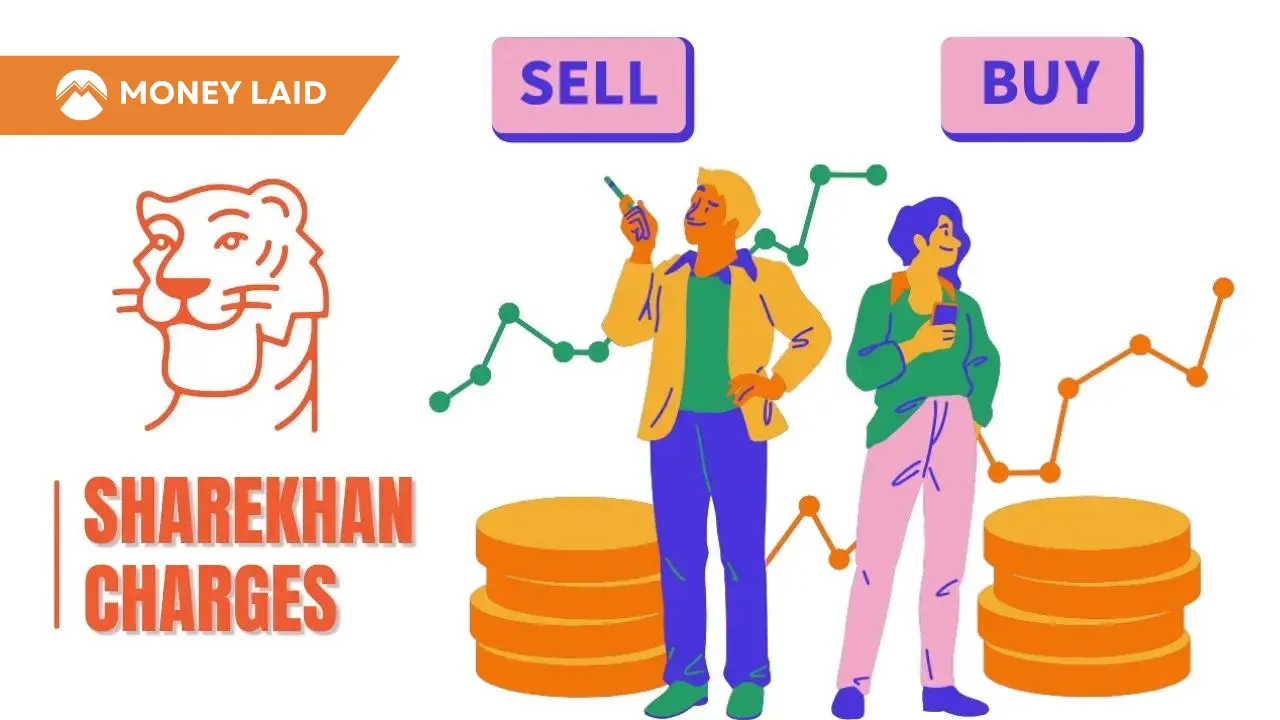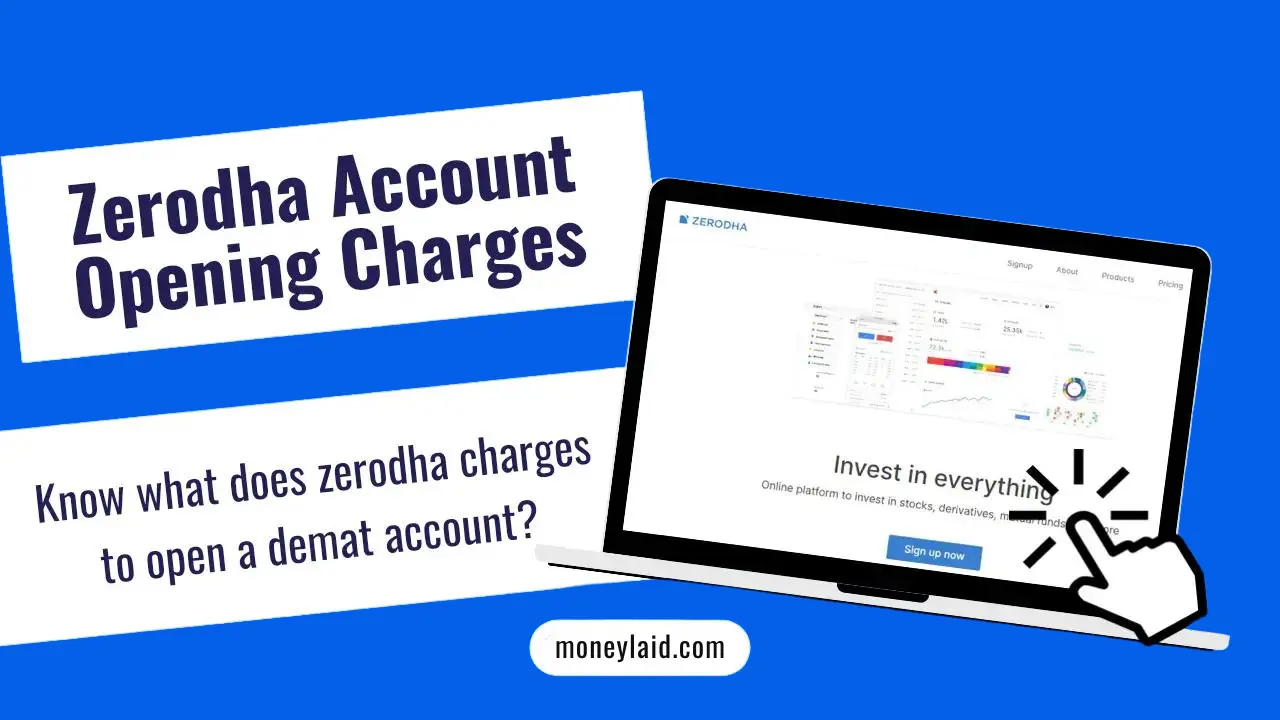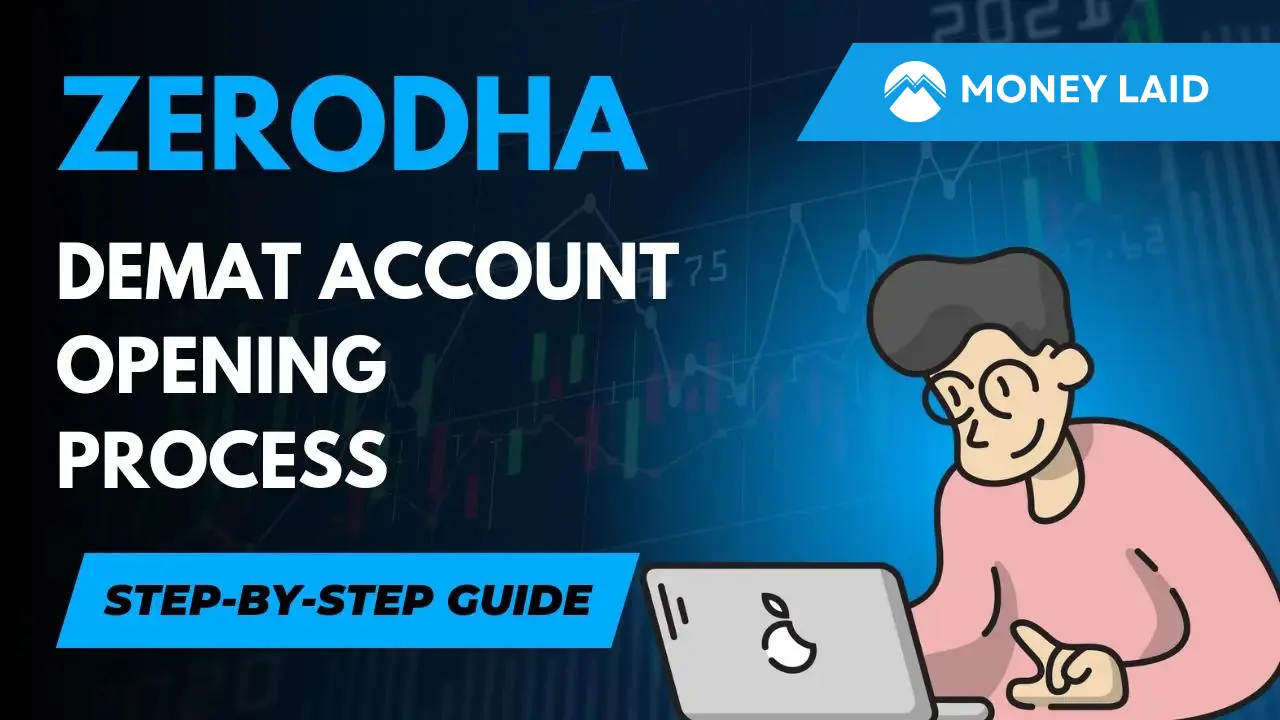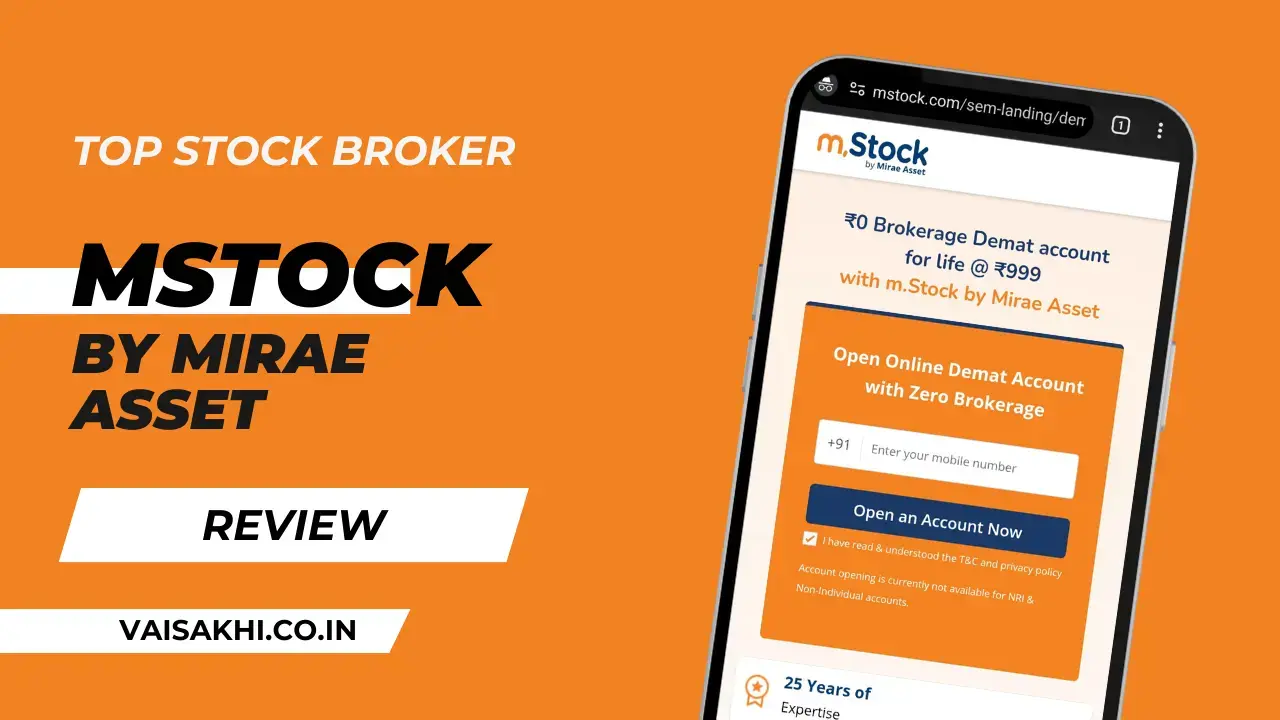Are you a Zerodha user who’s ever wondered about DP Charges in Zerodha 2025? DP, or Depository Participant, charges are levied by the depository (CDSL or NSDL) and the DP (Zerodha) when you sell shares from your demat account. These charges can add up over time, especially if you’re an active trader.
In this blog post, we’ll explain everything you need to know about DP charges in Zerodha, including what they are, how they’re calculated, and how to avoid them.
What are DP charges in Zerodha?
DP charges are levied by the depository and the DP when you sell shares from your demat account. The charges are per scrip (stock) and are applicable regardless of the quantity sold.
DP charges in Zerodha
- CDSL charges: ₹5.50 per scrip
- Zerodha charges: ₹8 per scrip
- GST: 18% on the total CDSL and Zerodha charges
So, for example, if you sell 100 shares of Reliance Industries from your Zerodha demat account, you will be charged a total of ₹15.93 (₹5.50 + ₹8 + ₹2.43 GST) in DP charges.
DP charges are a minor expense, but they can add up over time, especially if you are an active trader. There are a few ways to avoid paying DP charges, such as holding your shares for more than one day or using a single demat account.
Also Read: Zerodha Account Opening Charges: Review, Details, Documentions
How to Calculate DP Charges in Zerodha?
DP charges are calculated as follows:
DP charges = CDSL charges + Zerodha charges + GSTWhere:
- CDSL charges: ₹5.50 per scrip
- Zerodha charges: ₹8 per scrip
- GST: 18% on the total CDSL and Zerodha charges
For example, if you sell 100 shares of Reliance Industries from your Zerodha demat account, the DP charges would be calculated as follows:
DP charges = (₹5.50 + ₹8) * 100 + (18% * ₹13.50 * 100)
DP charges = ₹15.93Therefore, the total DP charges for selling 100 shares of Reliance Industries from your Zerodha demat account would be ₹15.93.
Please note that DP charges are per scrip, meaning that the charges are the same regardless of the quantity sold. So, whether you sell 10 shares or 100 shares of a particular scrip, the DP charges would be the same.
Also, DP charges are only applicable for equity delivery trades. There are no DP charges for intraday trades, F&O trades, or mutual fund trades.
How to avoid DP Charges in Zerodha?
1. Hold your shares for more than one day:
DP charges are only levied on the day of the sale. So, if you hold your shares for more than one day, you can avoid paying DP charges. This is a good option for investors who are looking to hold their shares for the long term.
2. Use a single demat account:
If you have multiple demat accounts, you’ll be charged DP charges on each account when you sell shares. Consolidating your holdings into a single demat account can help you save on DP charges. This is especially beneficial for active traders who sell shares frequently.
3. Use a discount broker:
Discount brokers like Zerodha offer lower DP charges than traditional brokers. This is because discount brokers have lower operating costs and they pass these savings on to their customers.
Tips for avoiding DP charges in Zerodha:
- Plan your trades ahead of time: If you know that you’re going to be selling shares in the near future, try to group your trades together so that you only have to pay DP charges once.
- Use a limit order: A limit order is an order to buy or sell a security at a specific price or better. By using a limit order, you can ensure that you’re not selling your shares until you’ve reached your target price. This can help you avoid paying DP charges on trades that don’t go your way.
- Consider using a different trading platform: Some trading platforms, such as Upstox and Angel Broking, offer zero DP charges on delivery trades. If you’re a frequent trader, it may be worth considering switching to a different trading platform to save on DP charges.
What is DP mean in Zerodha?
Zerodha’s Depository Participant (DP) is CDSL, and your demat account information, which is essential for various financial transactions, can be found by logging into your Zerodha Console account and navigating to “My Profile” and then “Demat.”
Here are the key details you can find in your demat account information:
- Zerodha DP Name: CDSL
- Zerodha DP ID: 12081600
- Zerodha Sample Demat Account Number: 1208160001234567
It's important to note that your demat account number is a unique combination of the DP ID and your Client ID. You should use this complete demat account number when applying for IPOs or engaging in other demat-related activities.
What is DP ID in Zerodha?
DP ID, or Depository Participant Identification Number, is a unique 8-digit number assigned to your Zerodha demat account by the Central Depository Services (India) Limited (CDSL). It is used to identify your account when you buy or sell shares.
Your DP ID is the same for all accounts that you hold with Zerodha. So, if you have multiple demat accounts with Zerodha, your DP ID will be the same for all of them.
You can find your DP ID in the following ways:
- In your Zerodha account statement
- In your Zerodha order confirmation email
- In your Zerodha demat holding statement
- On the Zerodha website: Log in to your Zerodha account and click on the “My Profile” tab. Your DP ID will be listed below the “DP Name” field.
Your DP ID is an important piece of information that you may need to provide when you are trading shares. For example, you may need to provide your DP ID when you are transferring shares from one demat account to another or when you are requesting a dividend payout.
Please note that your DP ID is different from your client ID. Your client ID is a unique 8-digit number that is assigned to you by Zerodha when you open your demat account. Your client ID is used to identify you as a Zerodha customer.
How to find DP ID in Zerodha?
To find your DP ID in Zerodha, you can follow these steps:
- Log in to your Zerodha account.
- Click on the “My Profile” tab.
- Scroll down to the “Demat” section.
- Your DP ID will be listed below the “DP Name” field.
Alternatively, you can also find your DP ID in the following ways:
- In your Zerodha account statement: Your DP ID will be listed at the top of the account statement.
- In your Zerodha order confirmation: Your DP ID will be listed in the order confirmation email.
- In your Zerodha demat holding statement: Your DP ID will be listed at the top of the demat holding statement.
Your DP ID is a unique 8-digit number that is assigned to your Zerodha demat account. It is used to identify your account when you buy or sell shares.
Please note that your DP ID is the same for all accounts that you hold with Zerodha. So, if you have multiple demat accounts with Zerodha, your DP ID will be the same for all of them.
What is DP Name in Zerodha?
The DP name in Zerodha is CDSL. This means that Zerodha is a depository participant (DP) of the Central Depository Services (India) Limited (CDSL), one of the two central depositories in India.
A DP is a financial institution that acts as an intermediary between the depository and its clients. DPs are responsible for opening and maintaining demat accounts for their clients, as well as for processing their trades.
When you open a demat account with Zerodha, your shares and securities will be held in electronic form in your demat account with CDSL. You can access your demat account holdings and transaction history through the Zerodha Kite platform.
Your DP name is an important piece of information that you may need to provide when you are trading shares.
For example, you may need to provide your DP name when you are transferring shares from one demat account to another or when you are requesting a dividend payout.
How to find DP Name in Zerodha?
To find DP name in Zerodha, you can follow these steps:
- Log in to your Zerodha account.
- Click on the “My Profile” tab.
- Scroll down to the “Demat” section.
- Your DP name will be listed below the “DP ID” field.
Your DP name is CDSL. This means that Zerodha is a depository participant of CDSL, one of the two central depositories in India.
You can also find your DP name in the following ways:
- In your Zerodha account statement
- In your Zerodha order confirmation email
- In your Zerodha demat holding statement
Your DP name is an important piece of information that you may need to provide when you are trading shares.
For example, you may need to provide your DP name when you are transferring shares from one demat account to another or when you are requesting a dividend payout.
FAQs
Is Zerodha a CDSL or NSDL?
Zerodha is a CDSL (Central Depository Services Limited) depository participant.
Does Zerodha charge depository charges?
Yes, Zerodha charges depository charges, also known as DP charges. DP charges are levied by the depository (CDSL or NSDL) and the DP (Zerodha) when you sell shares from your demat account. The charges are per scrip (stock) and are applicable regardless of the quantity sold.
Also Read:
- Zerodha Coin Review: Is Zerodha Coin good for Mutual Funds?
- Zerodha Kite Review: Know its Features, Benefits, Charges, Demat Account Setup Process
- Groww App Review: Is Groww App Safe?
- Upstox App Review: Is Upstox SEBI Registered?
- Fyers Trading App Review: Explore It’s Brokerage Charges, Features and So on
